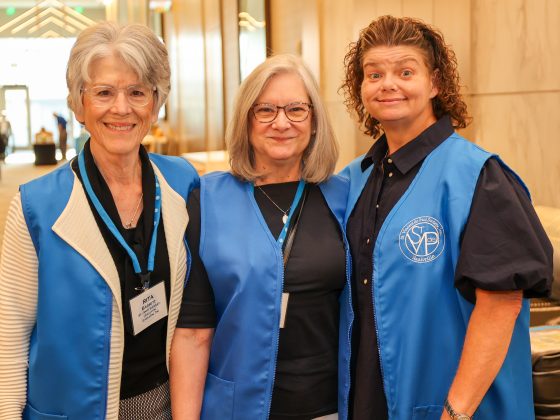Of our five Vincentian Virtues, the one that first comes to mind in considering the life and works of our founder, Blessed Frédéric Ozanam, is humility, which our Rule teaches us is “accepting the truth about our frailties, gifts, talents, and charism, yet knowing that all that God gives us is for others and that we can achieve nothing of eternal value without His grace.” [Rule, Part I, 2.5.1]
As a young man, he clearly recognized the blessings with which he had been bestowed, saying that “There does not exist perhaps in the vineyard of the Eternal Father, a single vine to which He has given so much care and attention.” Recognizing his own many gifts, he also recognized his obligation to share them for the benefit of others, to answer the call of “the mysterious voice from within.” And yet, while he “recognized God’s gift” he believed himself “incapable of willing or of acting.” [Baunard, 98-99]
At the Sorbonne, Frédéric certainly made great use of his formidable intellectual gifts. He quickly earned a reputation for his bold defenses of the faith in the face of attacks from students and professors alike. He was a skillful debater, unafraid in offering arguments that at times caused even his professors to rethink their own arguments.
And yet, when challenged in the Conference of History to show the good of the Church, Frédéric did not leap to impassioned argument. One of his chief goals in that debating club had been to win over the unbelieving students to the faith, and yet, when directly asked “what are you doing … to prove the truth of your faith?” he had no ready answer. [Baunard, 64] Surely such a brilliant debater could have launched a devastating argument; in modern parlance, he could have “owned” the Saint Simonians.
Instead, he and his friends left in silence. They could see not that their arguments had been defeated, but that words alone were not sufficient. Indeed, words had so far seemed counterproductive. Rather than rely upon their own intellect to show the good of the faith, they saw instead that they had to humbly follow upon the example of Jesus, and use their gifts to serve His poor.
It was the same thing taught by St. Vincent de Paul, who had two hundred years earlier advised one of his missioners to be “more humble and devout toward God, and more charitable toward your neighbor so that they may see the beauty and holiness of our religion and be moved to return to it.” [CCD VIII:209]
Our gifts are sufficient if we use them as God wills, for the benefit of others and the glory of His name, “without thinking of any reward or advantage for [ourselves].” [Rule, Part I, 2.2] The Society’s very founding was an act of humility. How can we do otherwise?
Contemplate
What personal ambition or desire is the “mysterious voice from within” calling me to set aside?




Thank you for the encouragement to keep going forward in humility.